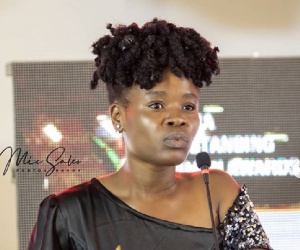Regional News of Thursday, 2 October 2014
Source: GNA
Elmina Chief advocates review of Chieftaincy Act
The Omanhen of Edina Traditional Area, Nana Kodwo Conduah VI has advocated for the review of section 25 of the Chieftaincy Act 759 of 2008, which provides for the establishment of Judicial Committees to adjudicate chieftaincy disputes.
According to him, the Act should be amended to remove lawyers or counsels from the committees because they delay cases with numerous adjournments.
Nana Conduah, who made the appeal at the annual general meeting of the Council on Tuesday, opined that makers of the previous Chieftaincy Act 360 of 1972 anticipated this problem and excluded lawyers from the trial of chieftaincy cases, resulting in faster resolution.
The Omanhene observed that lawyers of parties in chieftaincy disputes, especially at his Traditional Council, often asked for several adjournments, delaying trials of disputes pending at the judicial committees.
“I am therefore appealing to the Regional and National Houses of Chiefs to send a proposal to parliament to have the relevant sections of the new Chieftaincy Act 759 reviewed,” he said.
The meeting coincided with the launch of the 2015 Edina Bronya.
The Edina Bronya formerly known as “Nsagu Afahye” (Libation Festival) is an annual celebration of the Edina Traditional Area in remembrance of the founders who discovered the town with the rites preceding the celebration starting from the first Thursday of every New Year.
Next Year’s celebration dubbed “Sustaining the peace in Elmina” will mark the 17th anniversary of the installation of Nana Conduah as the Paramount Chief of the Traditional Area, which has seen three years of chieftaincy disputes.
The launch also saw Dr. Papa Kwesi Ndoum, Founder of the Progressive People’s Party (PPP), who hails from the Traditional Area, pronounced as anMpontuhen (Development Chief) of the Area.
Nana Conduah also appealed to the Government to allocate a quota of the revenue generated from the Elmina Castle to facilitate some developmental projects in the town adding that since mid-June 2009, funds received from the Ghana Museums and Monuments Board have been discontinued.
He said the funds received when a similar appeal was made to the Government in power then, was used to support some needy but brilliant students at various institutions , eight of which are now qualified nurses.
He further urged the Government to enforce the communal labour law and impose heavy sanction on sanitation offenders to serve as deterrent to others, adding that, the Traditional Council was ready to take such powers since efforts by assembly members had fallen on deaf ears due to their political affiliations.
He expressed worry that children in the town spent school hours and money gambling at gaming centers and advised parents to make their children’s education their topmost priority.
Nana Conduah stated that he would not relent in ensuring that such gaming centres and emerging slums popularly called “Ghettoes” where the youth drank hard liquor, abused drugs and engaged in other illegal activities leading to robbery and rape, were destroyed.
He called for peace and unity in the Area to ensure its development and pledged “to do all that it takes to nurture the peace and tranquility that is prevailing and I believe you would also play your part to maintain this atmosphere”.
In his acceptance remarks, Dr. Ndoum, who has undertaken a number of developmental projects in the area, pledged to continue to support the development of the town to become one of the most developed in the country.
He however, described as disgraceful the filth that was engulfing the town and called on the Youth leaders and residents to ensure that cleanliness was maintained all the times to create a better image of the town and also promote tourism.
Dr. Cadman Mills, an economic advisor to the President, called on indigenes and other investors alike to establish private business there to create employment for the teeming number of graduates and the youth who did not have the chance to acquire formal education.









